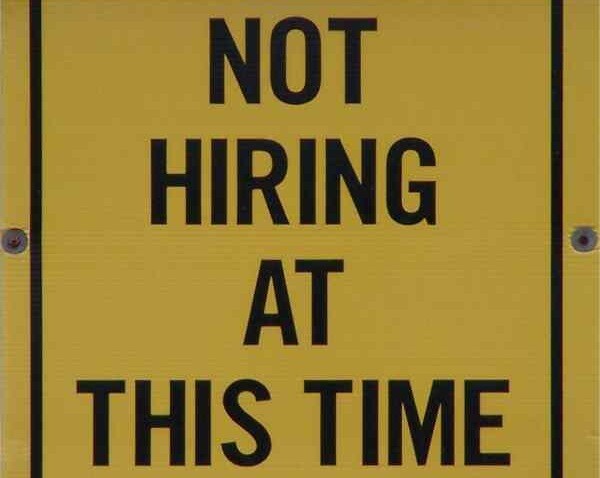Joblessness is No Longer 'Urgent,' But it's Still News

Three years into an alleged recovery from the great recession, the bad news about work just keeps coming. The paradox is that the worse the news gets, the less you read about it, which happens when a crisis starts to feel normal, when it slips from regular headlines of bad news to a permanent condition that gets no headlines at all. When was the last time you read a front-page story about racism or the pitfalls of capitalism? Like those things, the employment problem is spreading into an alarming amorphousness, with too many characters and plot lines to qualify as a news story. It doesn't have a narrative that can be followed on Twitter. Most damning of all, it isn't new, which means it isn't urgent. It just is.
The latest headline (such as it is) that caught my attention was that the group with the poorest prospects for employment these days are women between the ages of 45 and 54. That would be me. It's always sobering to realize you're part of an ill-fated statistic; it's like seeing yourself in a police lineup. Anyway, it made me think about my lifelong relationship to work. I always thought of "work" as solid but uninspired, something adults did to pay the bills and get by, buy a car and maybe take a modest vacation once a year. It was what my Uncle Wilbert did: he worked for the county as a janitor for close to fifty years, and retired on a decent pension. That was not going to be me.
From the time I started reading books, I saw myself as doing something to satisfy the demands of my imagination and growing expectations of the world as this great, possible, hospitable place that would always make room for whatever it was I was going to do, or be. Whatever that was, I would make money at it -- how could I not? How could I not be paid for being myself? I couldn't conceive of work as something separate from who I was.
I knew I was living in a new age. Work for my parents' generation had a demanding life of its own -- 4:30 a.m. shifts at the post office (if they were lucky), cleaning white people's houses, selling newspapers, transporting dead bodies, portering on a train, whatever was available and more or less respectable. Thriving and/or self-fulfillment came later, if at all. Expectations of bigger and better opportunities were tricky: you had to have them, but you had to be realistic at the same time. And there just was no downside to work. Employment for black people was (and still is) a cause of its own, which meant that securing work, especially full-time work that supported a family, was thriving in its own right. Self-fulfillment was nice, but superfluous.
I struggle with that idea. I wonder if I should swallow my expectations and go get a job at Petco, but even contemplating doing a faceless nine-to-five, not to mention a low-paying one that I haven't done since about 1985, makes me colossally depressed. I'd rather live on the ether of hope (and the occasional freelance job) that's sustained every black generation than to try to live on a dependable, but totally insufficient paycheck. That would be struggle on top of struggle. Sometimes I feel empowered by this choice, more often just I feel broke. At my gloomiest I feel like I've failed history, like I haven't lived up to my generational moment of finally breaking free of the more burdensome notion of work.
Years ago, during a visit I made to Vegas, my Uncle Wilbert asked me what I was doing with myself. Writing, I told him proudly, and gave him some details about why I thought it was important and resonant and all that. He nodded, but was unimpressed. "You need to get you a government job," he said. "Some security."
Maybe he was right. Not about the government job -- those are more or less gone, part of our new work condition. But I wouldn't have minded getting some security. If somebody my age, gender and color can attain that -- with or without a nine-to-five -- my job will feel more than done. And I can get on with full-time endeavor of being myself.


